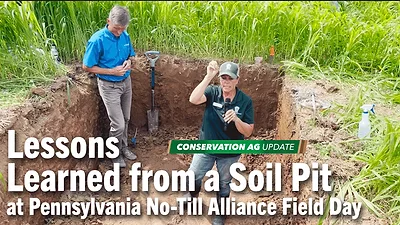Advertise Follow Us
Items Tagged with 'Drought'
ARTICLES
The Risk of Sidewall Compaction
When soil is in the 'plastic' state, the risk of sidewall compaction is high, which can affect early crop development and reduce crop yield potential.
Read More









